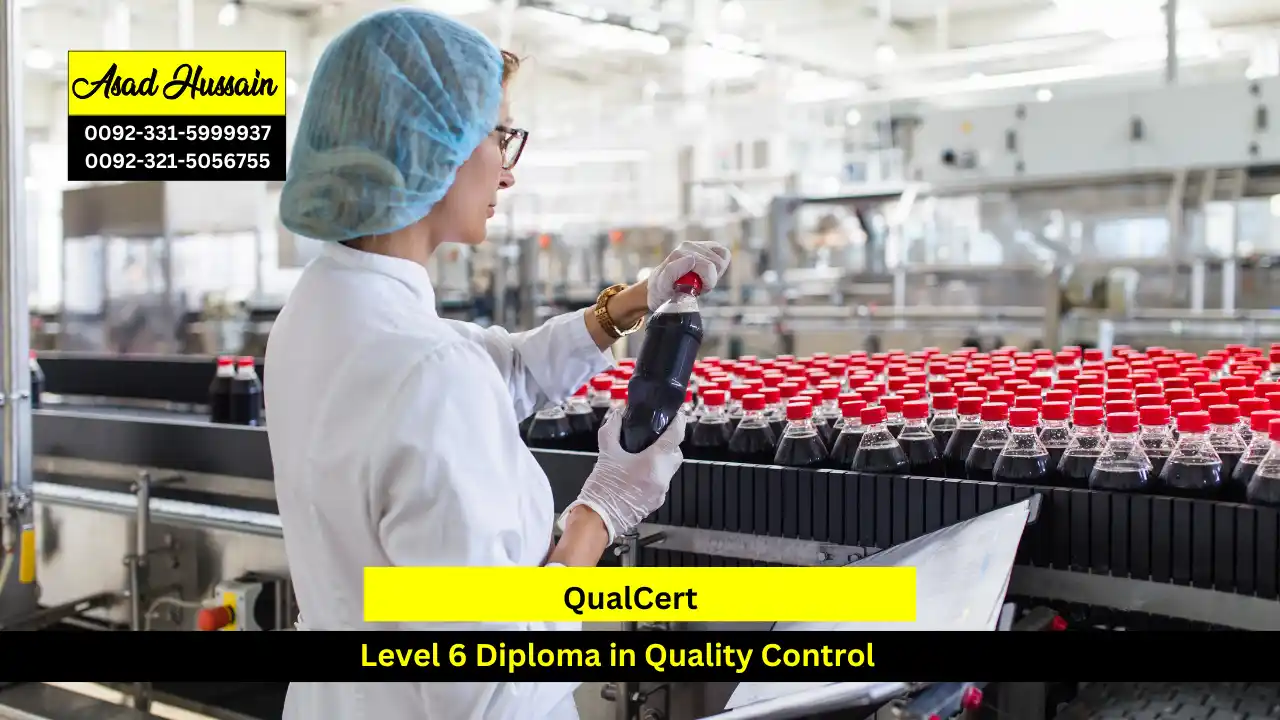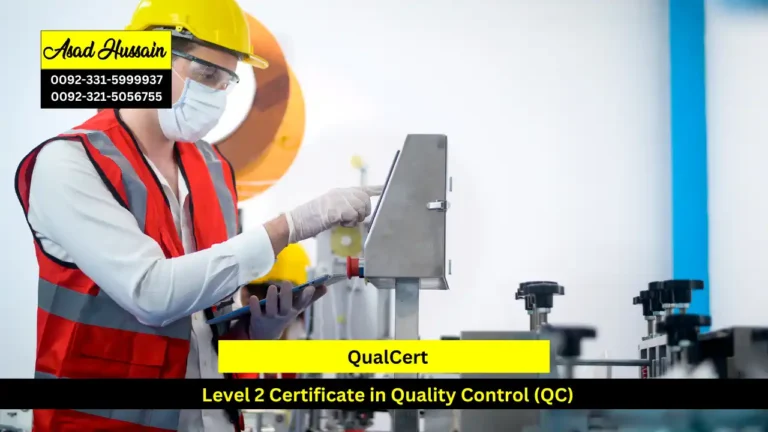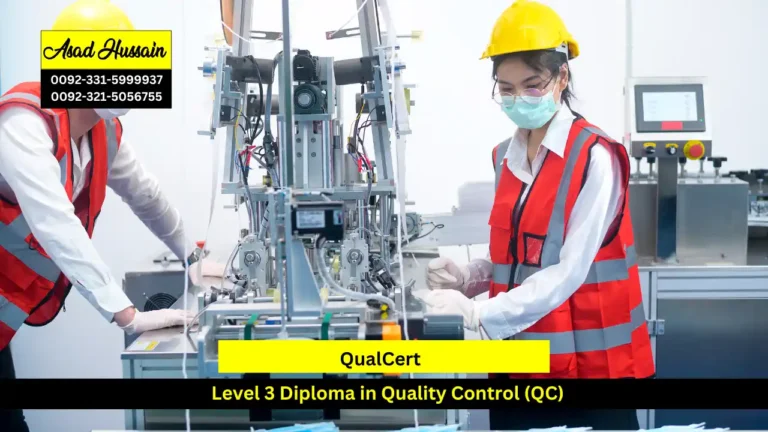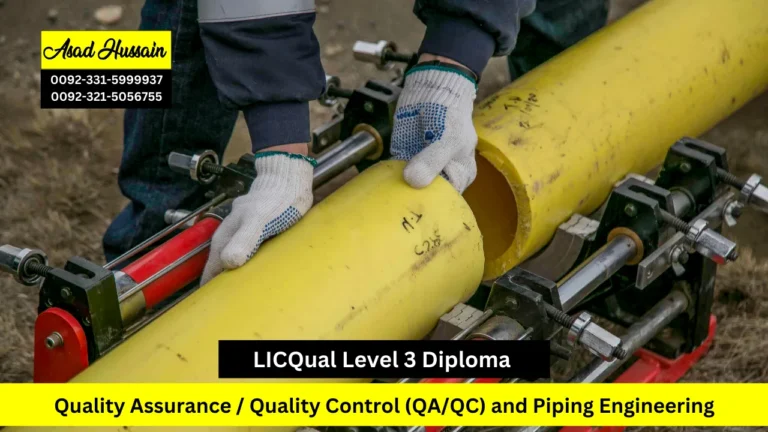In today’s competitive landscape, ensuring top-notch quality is more than just a necessity; it’s a strategic advantage. The Level 6 Diploma in Quality Control (QC) is designed for professionals who aim to excel in quality management and drive excellence in their organizations. This advanced qualification is tailored to equip individuals with the skills and knowledge needed to implement and oversee effective quality control systems.
The Level 6 Diploma in Quality Control is an advanced qualification that delves into the core aspects of quality management. It is intended for those already working in quality control roles or those aspiring to take on senior positions within the field. The diploma covers a wide range of topics, from quality control principles and techniques to the strategic implementation of quality systems.
The Level 6 Diploma in Quality Control is a robust qualification that equips professionals with the advanced skills needed to drive quality excellence. Whether you are looking to advance your career, enhance your organization’s quality standards, or gain a competitive edge, this diploma provides the tools and knowledge to succeed in the ever-evolving field of quality control. Embrace the opportunity to master quality management and make a significant impact in your industry.
Program Highlights
Mandatory Units
- Strategic Quality Management
- Advanced Statistical Methods for Quality Control
- Quality Systems Design and Optimization
- Leadership and Organizational Change
- Regulatory Compliance and Risk Management
- Quality Innovation and Technology
- Supplier Quality Management
- Continuous Improvement and Lean Six Sigma
- Sustainability and Quality
- Project Management for Quality
- Practical Applications and Case Studies
Educational Qualifications
- Completion of a Level 5 Diploma in Quality Control or Equivalent: Applicants should have successfully completed a Level 5 Diploma in Quality Control or an equivalent qualification in a related field such as quality assurance, industrial engineering, or manufacturing.
Work Experience
- Relevant Work Experience: Applicants should have a minimum of 3-5 years of work experience in quality control, quality assurance, or a related field. This experience should demonstrate a solid understanding of quality control principles and practices, as well as experience in applying these in a professional setting.
Prerequisite Knowledge
- Strong Foundation in Quality Control and Statistical Methods: Applicants should possess a strong foundation in quality control methodologies, statistical techniques, and quality management systems, as these are essential for the advanced topics covered in the Level 6 Diploma.
Language Proficiency
- Proficiency in English: Since the course is conducted in English, applicants must demonstrate proficiency in the language.
Strategic Quality Management
- Develop comprehensive quality strategies aligned with organizational goals.
- Evaluate and implement quality management frameworks to enhance business performance.
- Analyze the impact of strategic quality initiatives on overall business success.
Advanced Statistical Methods for Quality Control
- Apply advanced statistical techniques to monitor and control quality metrics.
- Interpret complex data sets to identify trends, anomalies, and areas for improvement.
- Utilize statistical tools for problem-solving and decision-making in quality control.
Quality Systems Design and Optimization
- Design effective quality management systems tailored to specific organizational needs.
- Assess and optimize existing quality systems for increased efficiency and effectiveness.
- Implement best practices for continuous improvement in quality system design.
Leadership and Organizational Change
- Develop leadership strategies to drive quality improvement and manage change effectively.
- Cultivate skills to inspire and guide teams through organizational transformations.
- Analyze the impact of leadership on quality culture and performance.
Regulatory Compliance and Risk Management
- Understand and apply regulatory requirements relevant to quality control across different industries.
- Identify, assess, and mitigate risks associated with quality management processes.
- Implement strategies to ensure ongoing compliance with regulatory standards.
Quality Innovation and Technology
- Explore emerging technologies and innovations in quality control.
- Evaluate the impact of technological advancements on quality management practices.
- Implement innovative solutions to enhance quality control processes and outcomes.
Supplier Quality Management
- Develop strategies for managing and improving supplier quality.
- Assess and select suppliers based on quality criteria and performance metrics.
- Implement supplier quality management systems to ensure consistent quality of materials and services.
Continuous Improvement and Lean Six Sigma
- Apply Lean Six Sigma principles to identify and eliminate waste in quality processes.
- Implement continuous improvement methodologies to enhance operational efficiency.
- Measure and analyze the effectiveness of improvement initiatives in achieving quality goals.
Sustainability and Quality
- Integrate sustainability principles into quality management practices.
- Assess the environmental and social impacts of quality control processes.
- Develop strategies to enhance sustainability while maintaining high-quality standards.
Project Management for Quality
- Apply project management techniques to quality improvement projects.
- Develop project plans, set objectives, and manage resources to achieve quality goals.
- Evaluate project outcomes and implement lessons learned for future quality initiatives.
Practical Applications and Case Studies
- Analyze real-world case studies to understand practical applications of quality control principles.
- Apply theoretical knowledge to solve practical quality issues and challenges.
- Develop solutions based on case study analysis and present findings effectively.
The Level 6 Diploma in Quality Control is designed for professionals seeking to advance their expertise in quality management and drive excellence within their organizations. Ideal candidates include Quality Control Managers and Quality Assurance Specialists aiming to deepen their strategic and technical skills. This course is also well-suited for Industry Professionals in sectors such as manufacturing, pharmaceuticals, and food production, where maintaining high-quality standards is crucial. Additionally, individuals looking to transition into quality control roles or those aspiring to take on leadership positions in quality management will find the diploma highly beneficial. Overall, this qualification caters to those committed to mastering advanced quality control techniques and leading impactful quality improvement initiatives.







